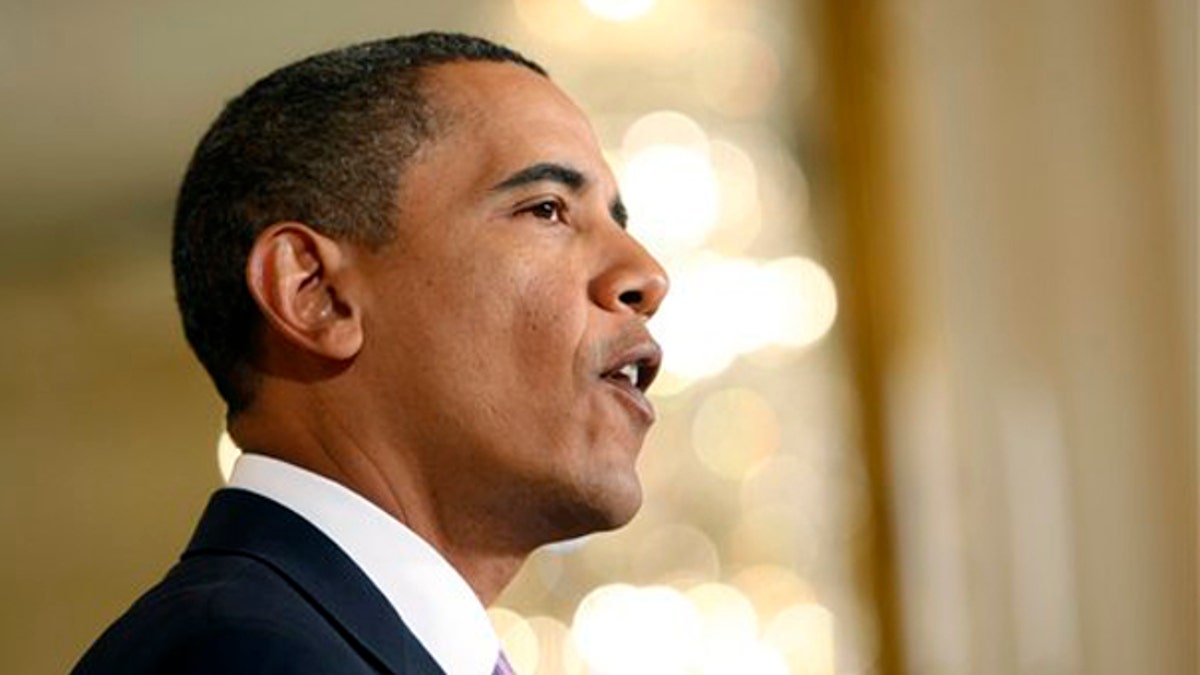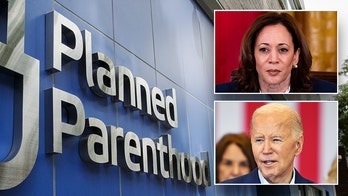
President Obama speaks about the economy, Friday, Jan. 8, 2010, in the East Room of the White House in Washington. (AP)
In an unusually sharp exchange, President Barack Obama criticized Venezuela's human rights record and raised concerns over its ties to Iran, eliciting a immediate response by Venezuelan President Hugo Chávez, who called Obama a "clown."
Although Obama has expressed concern about Chávez and his anti-American foreing policy before, the most recent commets seem to reflect a stiffening of his stance towards Chávez. Obama also pointedly raised concerns about threats to democracy in Venezuela.
Obama's remarks were published Monday by the Venezuelan newspaper El Universal.
I see Venezuela coming into the sphere of American politics during the election year.
"We're concerned about the government's actions, which have restricted the universal rights of the Venezuelan people, threatened basic democratic values and failed to contribute to the security in the region," Obama said in written responses to questions from the newspaper.
Chávez wasted little no time in responding. He said on state television, "Obama, take care of your own business, focus on governing your country, which you've turned into a disaster. Leave us alone."
Some of Obama's Republican opponents have also been strongly critical of Chávez, and analysts expect the Venezuelan president could become a popular target of criticism as American politicians feud over foreign policy ahead of next year's U.S. presidential election.
Miguel Tinker Salas, a Latin American studies professor at Pomona College in Claremont, California, said he expects more of such talk in 2012.
"I see Venezuela coming into the sphere of American politics during the election year," Tinker Salas said. "Once the candidates turn their attention to foreign policy, I could see Venezuela being manipulated into becoming an issue even when there are more pressing issues in the region such as the drug war in Mexico."
Like Obama, Chávez is up for re-election next year as he seeks to extend his 13-year presidency in the October vote.
Without mentioning Chávez, Obama also referred to a need for fair elections in the region.
"In Venezuela, we have been deeply concerned to see action taken to restrict the freedom of the press, and to erode the separation of powers that is necessary for democracy to thrive," Obama said. "In all countries of the region, we want to see elections that are free and fair."
Obama added that "it's unfortunate that the Venezuelan government is often more interested in revisiting the ideological battles of the past than looking forward to the future."
Obama told El Universal he hopes to eventually have a better relationship with Venezuela: "I look forward to the day when our governments can work more closely to advance the aspirations of our people."
Chávez has repeatedly accused the U.S. of trying to meddle in Venezuela's affairs and even to overthrow him.
The leftist leader has crusaded against U.S. influence in Latin America and has built close ties to other antagonists of Washington around the globe such as Libya and Iran. U.S. officials have expressed particular concern at Chávez's growing ties with Iran, and also have said Venezuela isn't doing enough to combat terrorism or drug trafficking.
In his statements, Obama said the U.S. government doesn't intend to dictate how Venezuela should handle its international affairs but said, "I would argue, however, that the Venezuelan government's ties to Iran and Cuba have not served the interests of Venezuela or the Venezuelan people."
Obama reiterated U.S. concerns about Iran's nuclear program and allegations that Iran's government supports terrorism.
"Ultimately, it is up to the Venezuelan people to determine what they gain from a relationship with a country that violates universal human rights and is isolated from much of the world," Obama said. "Here in the Americas, we take Iranian activities, including in Venezuela, very seriously and we will continue to monitor them closely."
He noted that earlier this year the U.S. State Department slapped sanctions on Venezuela's state oil company for selling gasoline components to Iran.
Eduardo Gamarra, a Latin American politics expert at Florida International University in Miami, said the Venezuelan leader's re-election campaign could actually receive a boost if U.S. politicians take on Chávez directly.
"It can help him at home and in the rest of Latin America, where it's a sport to take on the Americans," Gamarra said.
Chávez and Obama shook hands at a 2009 summit, but relations have since cooled.
The U.S. Embassy in Caracas has been without an ambassador since July 2010, with Chávez rejecting the U.S. nominee for ambassador, Larry Palmer, and accusing him of making disrespectful remarks about Venezuela's government. That led Washington to revoke the visa of the Venezuelan ambassador.
Associated Press writer Ian James contributed to this report.
Follow us on twitter.com/foxnewslatino
Like us at facebook.com/foxnewslatino




